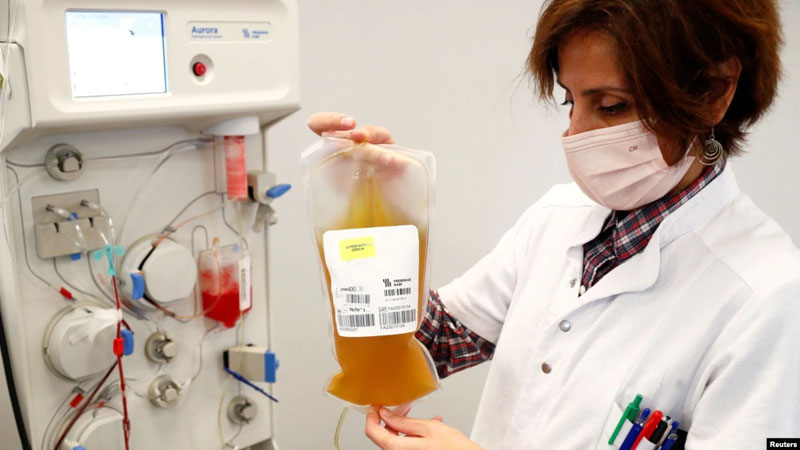WHO Advises Against Blood Plasma for Treating COVID-19 Patients

FILE – A nurse holds a bag of plasma from a recovered COVID-19 donor, at the Belgian Red Cross blood collection center in Brussels, Belgium, Oct. 27, 2020.
When given intravenously to persons sick with Covid-19, convalescent plasma showed some early promise, but recent advice expressed a “strong recommendation” against using blood plasma in people who do not have serious symptoms.
Paris: The World Health Organization said Tuesday that Covid treatments based on plasma collected from the blood of recovered coronavirus patients should not be given to persons with mild or moderate sickness.
When given intravenously to those sick with Covid-19, convalescent plasma showed some early promise.
But in advice published in the British Medical Journal, the WHO now says that “current evidence shows that it does not improve survival nor reduce the need for mechanical ventilation, and it is costly and time-consuming to administer”.
As per voanews, it made a “strong recommendation” against using blood plasma in persons who do not have serious Covid-19 symptoms, and stated that the medication should only be offered as part of a clinical trial for patients with severe and critical illnesses.
Convalescent plasma is the liquid part of a Covid patient’s blood that contains antibodies produced by the body after infection.
It was one of a number of putative remedies examined early in the epidemic, but clinical trials found it to be ineffective.
The World Health Organization stated its latest recommendations were based on evidence from 16 trials involving 16,236 patients with non-severe, severe, and serious Covid-19 infection.
Such carefully monitored, ethically structured trials, she adds, would help generate more evidence on the actual effects of this treatment among severely ill patients.
In February, the U.S. Food and Drug Administration scaled back its convalescent plasma emergency use authorization based on the results of clinical trials.


